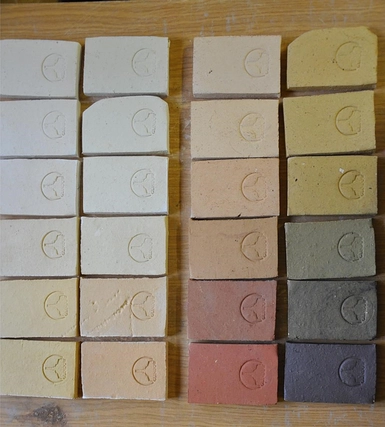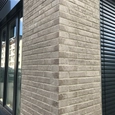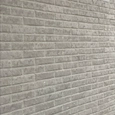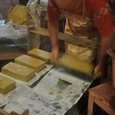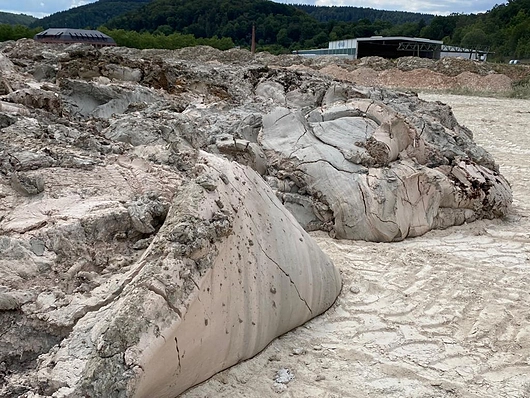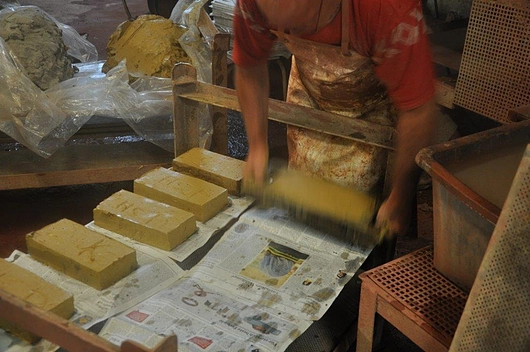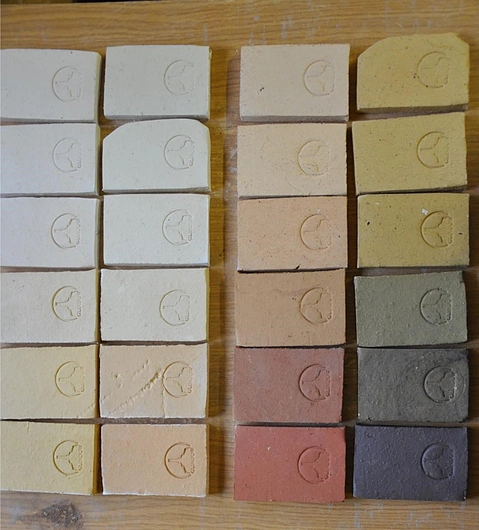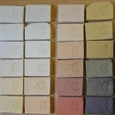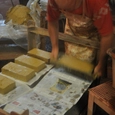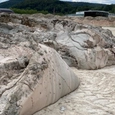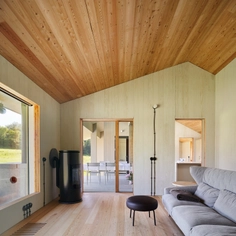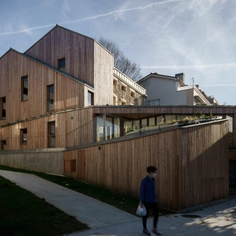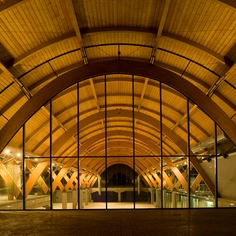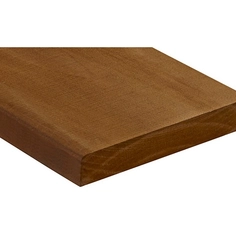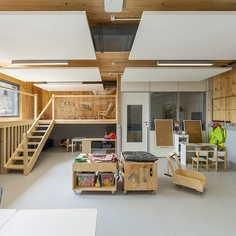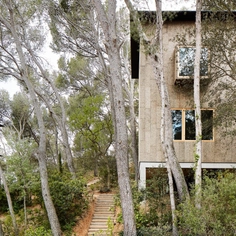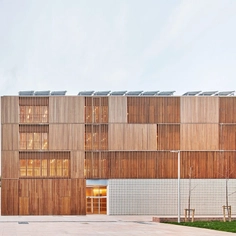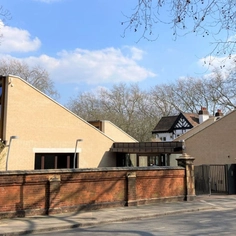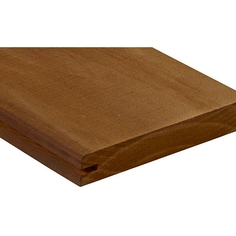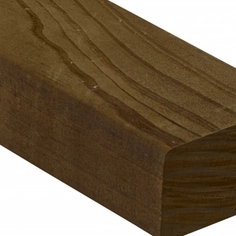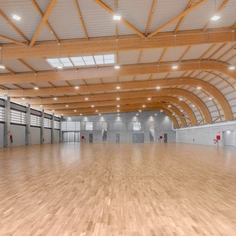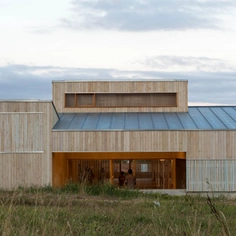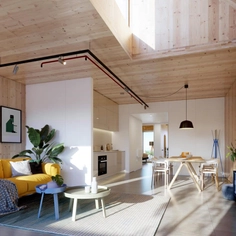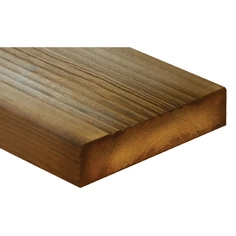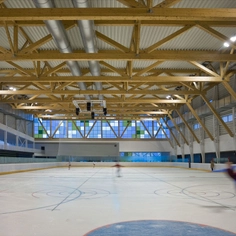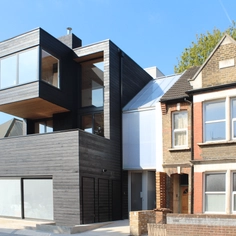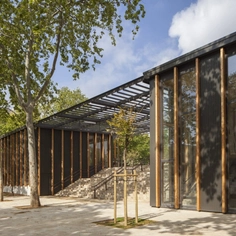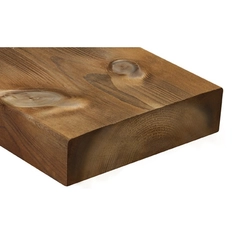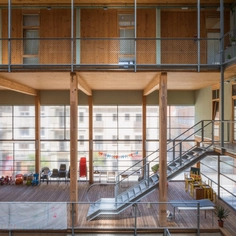Conventional brick is made of clay or shale that is formed, dried, and fired into a durable ceramic product. There are three ways to form the shape and size of a brick: extruded (stiff mud), molded (soft mud), and dry-pressed. Most bricks are made by extrusion.
A brick achieves its color through the minerals in the fired clay or through coatings that are applied before or after the firing process. This provides a durable color that never fades or diminishes.
Hofmann’s Renewable Green Brick substitutes clay or shale with recycled stone in the form of dried stone sludge. Stone sludge is created by wire cutting or sawing granite, limestone, and sandstone blocks. The sludge is collected in large settlement basins at Hofmann's factories.
This 100% natural by-product of Hofmann stone processing operations is dug out after drying and shipped to a local manufacturing plant kiln that molds and fires the brick.
A wide variety of colors and textures are possible. Hofmann's specialty handmade brick product pleases the highest architectural standards and expectations for a bespoke and customized look.
The Renewable Green Brick is able to make a great contribution to any project’s decarbonization effort as the use of stone sludge instead of clay/shale reduces the product’s carbon footprint significantly.


